Critical Perspectives on ICT in Kenya

“In Kenyan urban centers it is common to see many people walking around with their phone visible in their hands,” writes Jessica Gustafsson in her study of the means of communication in and around the Kenyan city of Eldoret. With such insights from the field Ørecomm begins a series of the fieldwork reports from researchers.
Jessica Gustafsson is the post-doctoral researcher in the Nordic-Kenyan research project Critical Perspectives on New Media and Processes of Social Change in the Global South. After having earlier completed her PhD about com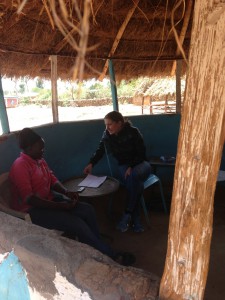 munity radios in the slum areas of Nairobi, she joined a research on the usage of media in the rural, semi-urban and urban areas in the Rift Valley, Kenya. In the fall of 2014 she conducted a major household study amongst 800 households and presented a working report at Malmø University in November 2014.
munity radios in the slum areas of Nairobi, she joined a research on the usage of media in the rural, semi-urban and urban areas in the Rift Valley, Kenya. In the fall of 2014 she conducted a major household study amongst 800 households and presented a working report at Malmø University in November 2014.
One of Jessica’s observations is the gender inequality in media usage. According to her findings in the areas in and around Eldoret, ”the more advanced and expensive the technology is the greater the gap between women and men seems to be.” Furthermore, when studying online debates, Jessica comes to conclusion that “religious issues are the only issues that seem to be more popular among women than men, as family issues, interestingly enough, are more discussed by men online.”
Now, while conducting an ethnographic fieldwork in the rural areas, Jessica shares her fieldnotes with observations she has made about communication tools in families. It appears that absence of electricity is the major challenge for technology to be more widespread. A mere ownership of a mobile phone doesn’t necessary mean it is frequently used: “It might take up to one week between phone calls.” With a new joint project of the World Bank, Kenyan Power and African Investment Bank more households are meant to get electricity, however, after paying a fee.
“The man told us that he has a mobile phone but that since he has neither electricity nor solar energy has to go to the center to charge his mobile phone. He also told us that he used to have a radio, but it broke, so now he no longer has one. He uses paraffin.”
While sharing individual stories collected in the rural areas, Jessica stresses again a pivotal gender issue.
“Ann was married very early, at the aged of 13 and she came from a low-income family. […] After some years her husband lost his job and started drinking heavily. It was then that she realized that it was up to her to work hard to make sure that the family had what it needed. […] She is the breadwinner of 17 people, which includes her kids, grandchildren, mother and mother in-law.”
Ørecomm will publish more findings of individual and community usage of media when Abraham Mulwo (Moi University), Poul Erik Nielsen (Åarhus University), Norbert Wildermuth (Roskilde University) and Martin Nkosi Ndlela (Hedmark University College) will start their fieldwork as the part of the Critical Perspectives project later this semester. In the autumn semester Ullamaija Kivikuru (University of Helsinki), Ylva Ekstrøm (Uppsala University), Hilde Artnsen (Oslo and Akershus University College of Applied Sciences), Thomas Tufte (Roskilde University) and Tobias Denkius (Malmø University) will join the research team with specific areas of interest such as online key opinion leaders; Twitter conversations; collective spaces of consumption and many more.
 New PhD opportunities at the University of Leicester
New PhD opportunities at the University of Leicester Call for Abstracts: New Directions in Media, Communication and Sociology (NDiMS) Conference
Call for Abstracts: New Directions in Media, Communication and Sociology (NDiMS) Conference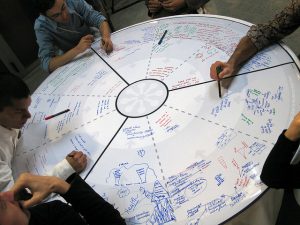 Ørecomm Team to Gather at the University of Coimbra
Ørecomm Team to Gather at the University of Coimbra “Communication and Social Change – A Citizen Perspective” Published
“Communication and Social Change – A Citizen Perspective” Published C4D Network to Sum Up Global Communication for Development Practice
C4D Network to Sum Up Global Communication for Development Practice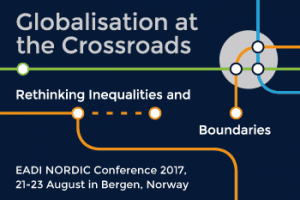 Entering Media and Communication into Development Conferences?
Entering Media and Communication into Development Conferences?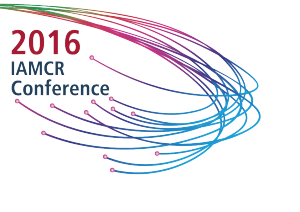 IAMCR Conference 2016: Communication for Development Highlights
IAMCR Conference 2016: Communication for Development Highlights Glocal Classroom Revisited – Storytelling & Social Change Leicester-Malmö
Glocal Classroom Revisited – Storytelling & Social Change Leicester-Malmö I EvalComDev International Conference: Call for Papers
I EvalComDev International Conference: Call for Papers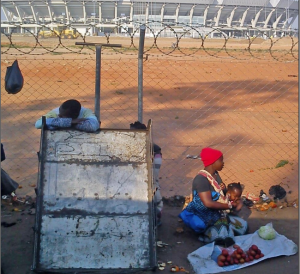 Looking for Media and Communication in Development Conferences: Devres 2016
Looking for Media and Communication in Development Conferences: Devres 2016